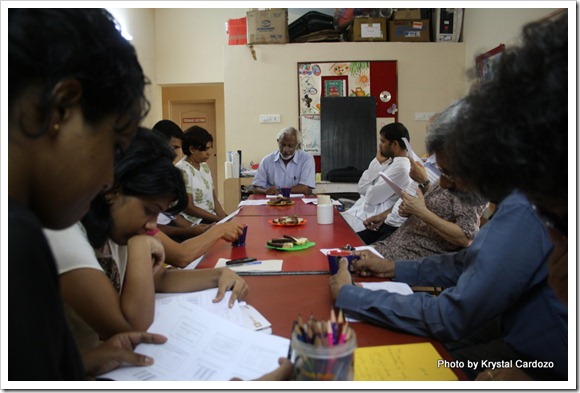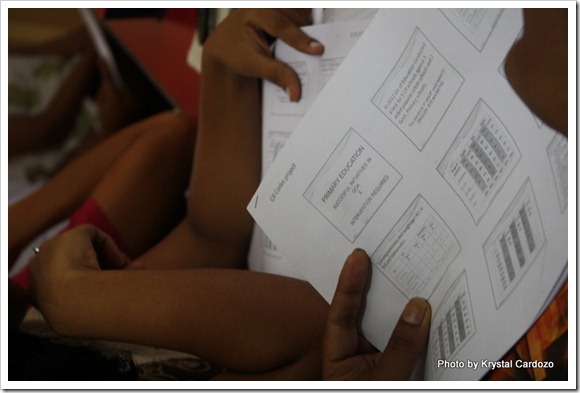Mr Anil Kher President of CII shared a report of a 4 year Primary school Intervention undertaken by him and his team in schools in Corlim, Goa.
The sharing session was attended by some representatives of CII team and some educationists who work in Elementary Education .
Prima facie sharing revealed that the time frame was not exactly 4 years , that the intervention was really a teacher motivation study with teacher meetings and monthly(Unit) Lesson plan meetings and some interaction with classroom teachers. The alleged impact of this intervention was then measured by testing of students from a control and experiment group on subject knowledge parameters. ( Report attached). Nothing was clear, nothing was empirically established and it was soon evident that no research methodology of any worth was exercised to arrive at findings that ‘proved’ that the intervention was indeed successful.
-
The educationists attempted to share some serious reservations about the study per se and about what CII seeks to do with intervening in the classroom without any pedagogic input or background in RM. The sentiment prevailed, but it was further revealed that in light of the this study, the CII now has sanction and permission to intervene in 55 Primary classrooms in the Taluka of Tiswadi. The objectives purpose and methodology of the proposed large scale intervention are unclear but what is clear that the CII has a strong Human capital theory agenda. That they believe by intervening at the primary grades they will in some way impact the quality of workforce that will be available in the country and to industry.
-
While some attempt was made to dialogue about aims of education, method and purpose of research, education as a public good and what one seeks to do versus how, it was clear that the CII has its aims set for the moment.
The meeting/sharing ended with a sense of two camps, two clearly different ideologies and understanding , but a ray of hope of meeting to dialogue further or alternatively providing a counter voice to an Industry viewpoint that should not necessarily be pursuing aims of education in the public sector that are meant to be situated in a more secular space.
You can view the report here


